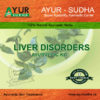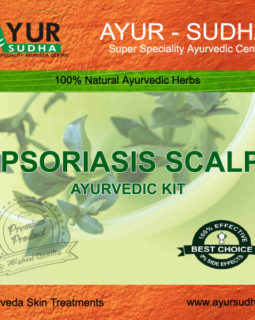LIVER DISORDERS AYURVEDIC KIT
LIVER DISORDERS AYURVEDIC KIT
$150.00
Description
AYURVEDIC TREATMENT FOR LIVER DISORDERS
AYUR – SUDHA’S Ayurvedic Kit for Liver Disease
Hepatitis A virus can be taken care of very easily with herbs. Many of the Ayurvedic herbs have shown remarkable results in clinical trials and studies. One of these is Eclipta Alba (Bhringaraj), others are Boerhavia diffusa (Punarnava), and Picrorhiza kurroa (Katuki).
It is recommend that people take these herbs on a prophylactic basis when travelling to parts of the world where hepatitis infection is a risk.
HBV and HCV are more serious infections. We must be careful how we use Ayurvedic herbs for prevention of HBV and HCV. The herbs mentioned earlier have shown a protective action in HBV, and using them on a regular basis may be a good way to prevent HBV.
Ayurvedic medicines play a significant role in protecting the liver from cirrhosis and from liver cancer. Animal and clinical studies done with Phyllanthus Amarus, Phyllanthus Niruri, and Eclipta Alba have proven their ability to reverse HBV infections in approximately 60% to 70% of patients. More significantly, with these herbs we are able to stop the process, which leads to cirrhosis and cancer of the liver.
This means that even if we are not able to make some patients negative for HBV and HCV, we can still protect them from cirrhosis of the liver, in which the liver stops functioning, and liver cancer.
Take very good care of your health. To protect your liver, avoid alcohol and caffeine. Drink green tea, exercise, reduce stress, and use the herbs mentioned above. Give this hard-working and essential part of your body a rest and a tune-up, and you will be rewarded with better health, more energy and higher disease resistance.
Symptoms of a “sluggish liver”
These are fatigue, general malaise, digestive problems, blood sugar regulation disorders (such as hypoglycemia), high cholesterol, psoriasis, allergies and chemical sensitivities and constipation. Extreme cases of liver problems would be jaundice, hepatitis and cirrhosis.
Hepatitis
Among the many diseases that can affect the liver the most common is hepatitis (a viral infection of the liver). Hepatitis can be caused by drugs, viruses, bacteria, mushrooms, parasites like amoebas or giardiasis. The most common hepatitis viruses affecting the liver are named for letters of the alphabet: hepatitis A, hepatitis B, hepatitis C, hepatitis D, and hepatitis E.
Hepatitis A – takes 14 to 21 days after infection to cause symptoms. It is transmitted through food.
Once infected with HAV, some symptoms such as dark yellow urine and fatigue will begin to appear within 25 days.
Hepatitis B – is on the increase world-wide. It is transmitted through direct contact with blood, serum, saliva, faeces, urine, and sexual contact.
Hepatitis C – is a truly serious disease with no known effective treatment. It is transmitted through blood and body fluids in transfusions, injections, the sharing of IV needles with drug users, and possibly by sexual contact with exposed partners.
Hepatitis D – only occurs in the presence of Hepatitis B virus.
Hepatitis E – is another common type of hepatitis in developing countries. It occurs in epidemics. The infection route for it is faecal-oral, the same as the route for Hepatitis A virus; therefore, again, you must be very careful in what you eat and drink.









